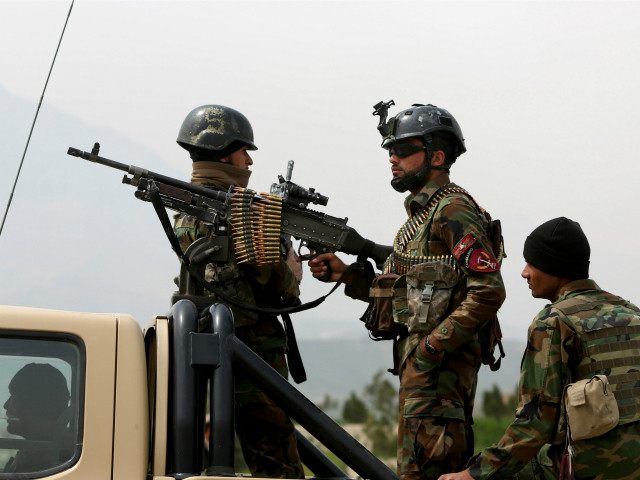The Pentagon has “lost much of its ability” to monitor the effectiveness and capability of the Afghan security forces as the Taliban and other insurgents have stepped up their assaults, stresses the top watchdog for U.S.-funded nation-building projects in Afghanistan.
According to remarks prepared for a speech at Harvard University on Thursday, Special Inspector General for Afghanistan Reconstruction (SIGAR) John Sopko, a congressionally mandated auditor, revealed that 61 percent ($68 billion) of the $113 billion committed to Afghanistan’s reconstruction since the war began nearly 15 years ago have been devoted to security, including the development of the Afghan security forces.
The security forces officially known as the Afghan National Defense and Security Forces (ANDSF) include army, police, and militia units.
SIGAR noted that U.S.-taxpayer funds are likely used to pay for “ghost” ANDSF personnel numbering in the thousands.
“As a result of the U.S. military drawdown in Afghanistan, the Department of Defense lost much of its ability to collect reliable information and data on Afghan security capability and effectiveness,” emphasized SIGAR. “U.S. advisors have little or no direct contact with ANDSF units below the army-corps and regional police-headquarters level.”
He made similar comments in a report released in late 2015.
“As our military leaders have put it, the United States has lost ‘touch points’ with the Afghan battalions and brigades and police units that actually conduct operations,” added the inspector general in his prepared remarks. “Meanwhile, we continue to rely on Afghan reporting on unit strengths, a concern because the rolls may contain thousands of ‘ghost’ personnel whose costs we pay and whose absence distorts realistic assessments of Afghan capabilities.”
Sopko pointed out that the security conditions in Afghanistan have deteriorated. Various analysts have recently said the Taliban insurgency controls more territory now than at any time since it was dethroned by the U.S. military in 2001.
Afghan civilians and security forces have suffered record casualties since President Barack Obama declared an end to the U.S. combat mission at the end of 2014 and took away the American military’s authority to offensively attack the Taliban.
Obama has also heavily reduced the U.S. military footprint in Afghanistan. Although the Taliban remains the largest terrorist group in Afghanistan, the Islamic State (ISIS/ISIL) is trying to expand its presence there, according to the Pentagon, SIGAR, and Afghan officials.
“The Taliban and other insurgents repeatedly carry out hit-and-run assaults on Afghan army and police checkpoints and small outposts, capturing weapons, inflicting casualties, and eroding the credibility of the government in Kabul,” he said, later adding, “Security is the essential ingredient for establishing a credible, viable, legitimate government-and for persuading insurgents that they need to negotiate.”
SIGAR highlighted the most recent Afghanistan travel warning issued by the U.S. State Department.
It warns:
The security situation in Afghanistan is extremely unstable … Travel to all areas of Afghanistan remains unsafe due to ongoing military combat operations, landmines, banditry, armed rivalry between political and tribal groups, and insurgent attacks, including attacks using vehicle-borne or other improvised explosive devices.
“American personnel in Afghanistan, including more than two dozen SIGAR staff on duty there, know this to be true,” noted Sopko. “They are generally confined to the U.S. Embassy, and must take a helicopter even to get to the airport because the roads are so unsafe.”
“Large parts of Afghanistan are effectively off-limits to foreign personnel, whether they are managing projects or responsible for oversight functions,” he added. “SIGAR, I should mention, is mitigating this challenge by using Afghan-national employees, using GPS technology, and by working with a local nongovernmental entity.”
The U.S.-taxpayer funded nation-building effort in Afghanistan is at a “perilous state,” warned the auditor.
“Afghanistan has had the lead responsibility for its own security for more than a year now, and is struggling with a four-season insurgency, high attrition, and capability challenges,” Sopko explained.
Nevertheless, he added, “To be fair, I remind you that U.S. agencies have had reconstruction successes in Afghanistan. Despite ongoing violence, the Afghan people are healthier, better schooled, and less impoverished than they were 15 years ago.”

COMMENTS
Please let us know if you're having issues with commenting.